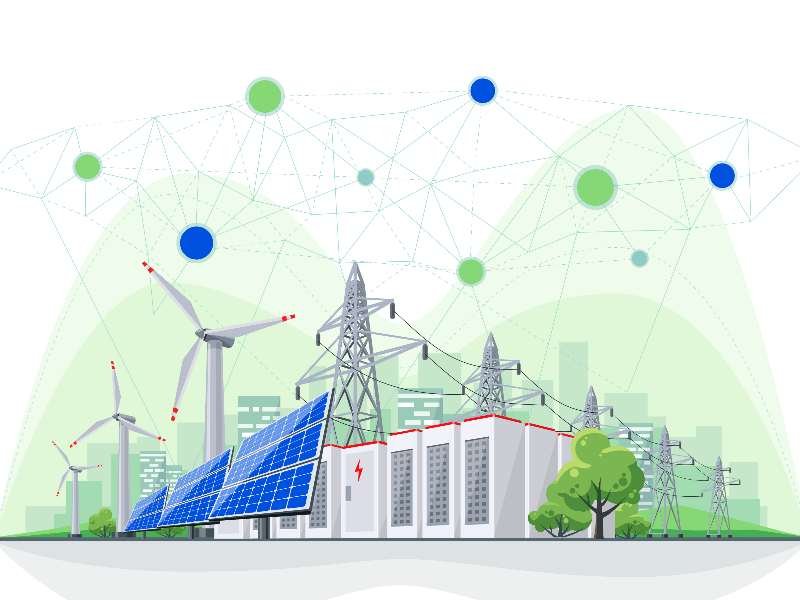Dubai Electricity and Water Authority (DEWA) has once again proven how innovation and sustainability go hand in hand. The government utility provider has reported a significant 20% reduction in energy consumption across its operations, thanks to its continued investment in smart systems and technologies. This milestone aligns perfectly with Dubai’s broader strategy to become a global leader in clean energy and digital transformation.
The announcement comes at a time when energy conservation and climate responsibility are more crucial than ever. As cities around the world push to reduce carbon emissions and improve efficiency, DEWA’s example sets a promising precedent for what’s possible when technology and purpose unite.
What’s Behind the 20% Drop?
The 20% energy savings reported didn’t happen overnight. DEWA has been deploying smart grids, automated control centres, artificial intelligence, and Internet of Things (IoT) technologies throughout its infrastructure for years. These digital tools help monitor real-time consumption, predict demand patterns, and respond dynamically to changes in supply and demand.

One of the core technologies driving this change is DEWA’s Advanced Metering Infrastructure (AMI), which collects consumption data from smart meters and sends it to central systems for analysis. These systems then optimize energy distribution across the grid, cutting waste and enhancing reliability. The result? A greener, leaner, and smarter way of powering the city.
Smart Grids, Smarter Cities

The adoption of smart grids has transformed how energy is distributed and consumed in Dubai. By allowing two-way communication between DEWA and its customers, smart grids give consumers more control over their electricity usage, while enabling DEWA to detect outages, respond faster to faults, and operate more efficiently.

For example, customers can now use the DEWA smart app or web portal to track their energy and water consumption in real time. This not only encourages mindful usage but also helps residents reduce their utility bills. At the same time, DEWA can better forecast demand spikes, manage power loads during peak hours, and lower the strain on the grid—all while keeping service quality high.
AI and IoT at the Core
The 20% savings are also a direct result of DEWA’s bold integration of AI and IoT into their daily operations. DEWA’s AI-powered control centres constantly monitor performance data across the grid. Algorithms analyze the information and make split-second decisions that boost efficiency and reduce energy losses.
Sensors placed across pipelines, substations, and power lines provide real-time data, helping to detect leaks, equipment malfunctions, or inefficiencies before they escalate. In essence, this predictive maintenance model ensures that minor issues don’t turn into costly outages or repairs.
This high-tech ecosystem also helps DEWA anticipate energy needs before they arise, minimizing the need for excessive energy production and making the entire system more sustainable.
Customer Empowerment Through Technology
DEWA isn’t just focused on internal transformation; it’s also empowering its customers to play a role in the energy-saving movement. Through its “Smart Living” initiative, DEWA offers tips, tools, and features that encourage households and businesses to take charge of their energy consumption.
Consumers can set monthly budgets, get high-consumption alerts, and receive tailored recommendations on how to improve efficiency. All of this adds up to a more informed public and a smarter use of resources citywide.
The response so far has been overwhelmingly positive. Many households have reported seeing noticeable drops in their electricity and water bills after taking advantage of the monitoring and feedback tools.
Sustainability Targets in Sight
This 20% energy savings aligns with DEWA’s long-term sustainability targets, including the Dubai Clean Energy Strategy 2050 and the Dubai Net Zero Carbon Emissions Strategy 2050. Both of these initiatives aim to make Dubai one of the world’s most sustainable cities by relying on clean and renewable energy sources.
DEWA is also a major player in the Mohammed bin Rashid Al Maktoum Solar Park, which is one of the largest renewable energy projects in the region. With an expected production capacity of 5,000 megawatts by 2030, the solar park is a clear sign that DEWA’s vision extends far beyond conventional energy saving.
By complementing large-scale projects with smart operational systems, DEWA is ensuring that every kilowatt counts—both at the source and at the point of consumption.
Economic and Environmental Wins

The economic impact of these energy savings is no small matter. Reduced energy waste translates into lower operational costs, which in turn allows DEWA to invest further in innovation and customer service. This makes the organisation financially stronger and more agile, even as energy demands continue to grow.
Environmentally, the savings equate to fewer carbon emissions and a reduced ecological footprint for the emirate. As climate change continues to dominate global discourse, DEWA’s proactive steps offer a beacon of what sustainable progress can look like in practice—not just theory.
Looking Ahead
As DEWA celebrates this 20% energy-saving achievement, the focus now shifts to scaling these systems even further. More integration, more automation, and more digital transformation are on the horizon.
DEWA plans to enhance its AI capabilities, increase smart meter installations, and extend smart grid benefits to more sectors of society. With Dubai’s population and energy needs expected to rise, staying ahead of the curve is essential—and DEWA seems more than ready for the challenge.
There are also ambitions to export knowledge and expertise. As cities in the region look to modernize their own utility networks, DEWA’s model may serve as a blueprint for achieving efficiency, sustainability, and customer satisfaction all at once.
Conclusion
DEWA’s 20% energy savings through smart systems is more than just a number—it’s a statement. A statement that technology, when used thoughtfully and strategically, can bring measurable improvements to both everyday life and long-term sustainability.
It’s also a reflection of what’s possible when innovation is not just encouraged but embedded into the DNA of a city’s infrastructure. As Dubai continues to pave the way toward a smarter, greener future, DEWA’s leadership is setting the tone—one watt at a time.
Also read: RTA Installs New AI Traffic Monitoring Tech in Dubai














